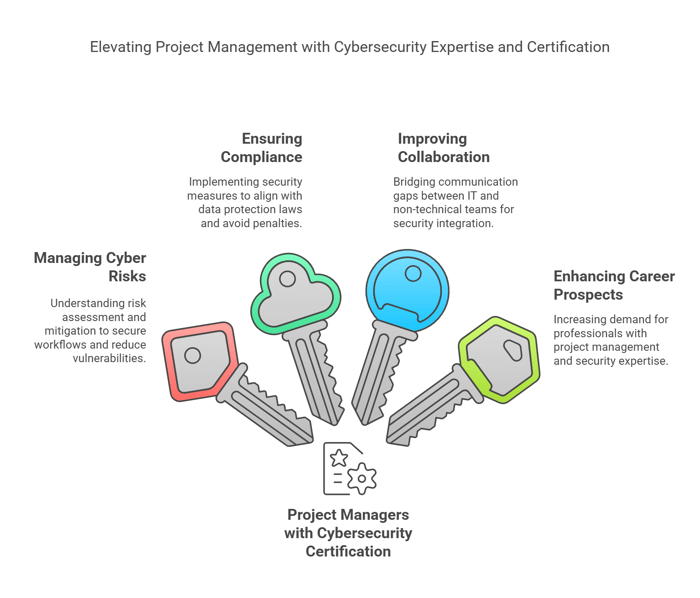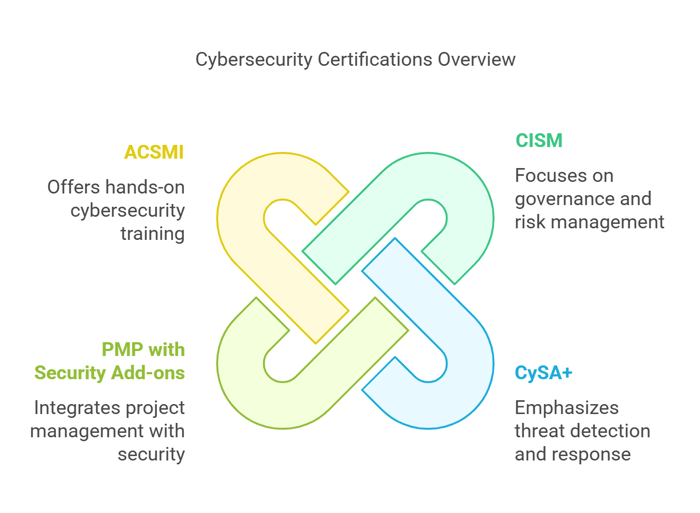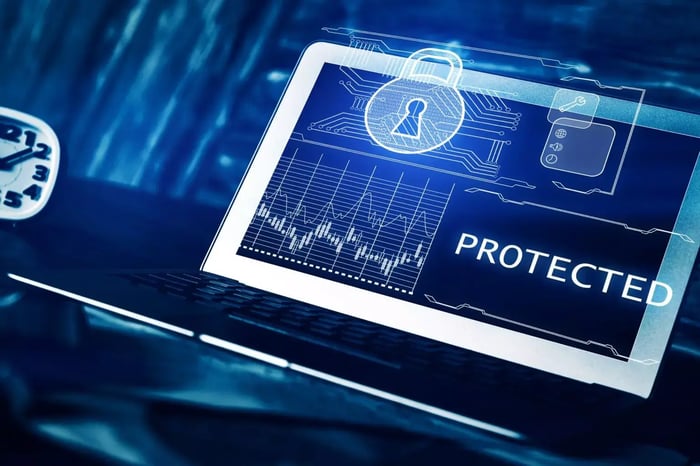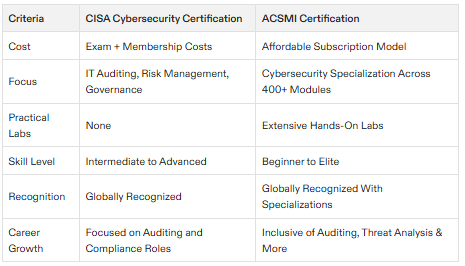Table of Contents
- Why Project Managers Need Cybersecurity Certification
- 1. Managing Cyber Risks
- 2. Ensuring Compliance with Regulations
- 3. Improving Cross-Functional Collaboration
- 4. Enhancing Career Prospects
- Top Cybersecurity Certifications for Project Managers
- How to Choose the Right Certification
- Key Benefits of ACSMI for Project Managers
- Final Thoughts
- FAQs About Cybersecurity Certification for Project Managers
The digital era has introduced unparalleled opportunities and risks. Understanding cybersecurity is no longer optional for project managers—it’s essential. Managing projects involving sensitive data, IT infrastructure, or compliance regulations requires expertise in security. Earning a Cybersecurity Certification for non-IT Professionals can give you a competitive edge in today’s evolving landscape.
This guide explores why cybersecurity knowledge is crucial for project managers, the best certifications to consider, and how programs like ACSMI’s 400+ specialized modules can empower you with hands-on skills.
Why Project Managers Need Cybersecurity Certification
Project managers are crucial in ensuring that projects are executed securely and efficiently. With increasing cyber threats, security cannot be left solely to IT teams. Project managers must understand cybersecurity concepts to minimize risks, comply with regulations, and enhance team collaboration. Here’s why earning a cybersecurity certification is a game-changer:

1. Managing Cyber Risks
Projects often involve handling sensitive data, making them prime targets for cyber threats. Understanding risk assessment and mitigation strategies allows project managers to build secure workflows, reducing vulnerabilities and improving project success rates.
2. Ensuring Compliance with Regulations
With stricter data protection laws like GDPR, HIPAA, and CCPA, businesses must ensure compliance to avoid penalties. Project managers with cybersecurity expertise can implement security measures that align with legal frameworks, protecting both the company and customer data.
3. Improving Cross-Functional Collaboration
Security measures must be seamlessly integrated into project planning and execution. A cybersecurity-certified project manager can bridge communication gaps between IT and non-technical teams, ensuring smooth implementation of security best practices.
4. Enhancing Career Prospects
With organizations prioritizing cybersecurity, professionals with both project management and security expertise are in high demand. Earning a cybersecurity certification can lead to leadership roles and higher salary potential in industries like finance, healthcare, and technology.
Top Cybersecurity Certifications for Project Managers
Selecting the right cybersecurity certification depends on your career goals and industry requirements. Here are the top certifications to consider:

1. Certified Information Security Manager (CISM)
CISM is a globally recognized certification for professionals who focus on governance, risk management, and security compliance. It provides expertise in integrating cybersecurity strategies into business operations.
Key Highlights:
Recognized for leadership roles in cybersecurity and risk management.
Requires five or more years of experience in IT security management.
Focuses on developing security policies and frameworks for enterprises.
2. CompTIA Cybersecurity Analyst (CySA+)
This vendor-neutral certification is designed for professionals who work in threat detection and incident response. It is well-suited for project managers handling IT security projects.
Key Highlights:
Covers threat detection, vulnerability analysis, and risk mitigation.
Helps professionals understand behavioral analytics and automation.
Recognized by government agencies and private sector employers.
3. Project Management Professional (PMP) with Security Add-ons
While PMP is a globally recognized project management certification, adding security-specific modules can provide a competitive advantage in managing IT security projects.
Key Highlights:
Covers project risk management and security integration.
Enhances skills in budget allocation, compliance, and secure project execution.
Ideal for managers overseeing cybersecurity-related initiatives.
4. ACSMI Cybersecurity Certification
ACSMI is a top choice for project managers seeking hands-on cybersecurity training. It offers in-depth learning through real-world scenarios, covering over 400 modules.
Key Highlights:
Covers cloud security, IoT vulnerabilities, and risk management.
Provides a flexible learning structure tailored for professionals.
Recognized worldwide for developing cybersecurity leaders.
How to Choose the Right Certification
Selecting the best cybersecurity certification requires careful consideration of your current skills, career goals, and budget. Follow these steps to make an informed decision:

1. Assess Your Experience Level
If you are new to cybersecurity, consider foundational certifications like CompTIA Security+. For experienced professionals, CISM or ACSMI offers advanced skills and leadership training.
2. Define Your Career Goals
If compliance and risk management interest you, CISM is a great option. If you prefer a hands-on approach, ACSMI provides real-world cybersecurity training.
3. Consider Training Costs
Certification fees vary, with costs ranging from $500 to $3,000. ACSMI provides extensive training at a competitive price, making it a cost-effective investment.
4. Ensure Hands-On Training
Cybersecurity requires practical knowledge. Choose certifications that include case studies, lab simulations, and real-world problem-solving exercises.
5. Look for Industry-Relevant Certifications
As threats evolve, industry-recognized certifications such as ACSMI, CySA+, and CISM help you stay updated on emerging security trends like AI-based cyber defense and cloud security.
Key Benefits of ACSMI for Project Managers
ACSMI stands out due to its extensive cybersecurity curriculum and flexible learning structure. It is tailored to help project managers develop practical security skills while managing complex projects.
🔹 400+ Modules: Covering threat modeling, malware analysis, and secure development lifecycles.
🔹 Self-paced learning: Ideal for working professionals balancing multiple responsibilities.
🔹 Global Recognition: Valued by employers for its real-world approach and industry relevance.
Final Thoughts
Earning a cybersecurity certification for project managers is essential for securing modern projects. Whether you are mitigating risks, ensuring compliance, or leading cybersecurity initiatives, the right certification can set you apart.
The ACSMI certification, with its 400+ modules, is the ideal choice for professionals looking to advance their expertise while maintaining leadership roles in project management.
Empower your career—it’s time to lead secure and successful projects!
FAQs About Cybersecurity Certification for Project Managers
1. Why is cybersecurity important for project managers?
Cybersecurity is essential for protecting data, systems, and project deliverables. Project managers must integrate security into workflows to prevent cyber threats.
2. Which certification is best for project managers?
ACSMI, CISM, and CySA+ are among the top choices. ACSMI is particularly suited for professionals seeking flexible and hands-on training.
3. Can beginners pursue cybersecurity certification?
Yes! Certifications like ACSMI and CompTIA Security+ provide foundational cybersecurity skills for project managers at all levels.
4. Is ACSMI suitable for career transitions into cybersecurity?
Absolutely. ACSMI’s practical modules make it an excellent option for project managers shifting into cybersecurity roles.
5. What’s the time commitment for ACSMI certification?
It varies, but ACSMI’s self-paced structure allows learners to complete modules based on their schedule.
6. Are cybersecurity certifications expensive?
Costs depend on the certification. ACSMI offers a cost-effective option with extensive resources and hands-on training.
7. Will a cybersecurity certification increase my salary?
While not guaranteed, professionals with cybersecurity credentials tend to earn higher salaries due to increased demand.
8. How often does ACSMI update its modules?
ACSMI regularly updates its curriculum to address emerging cyber threats and evolving industry needs.





